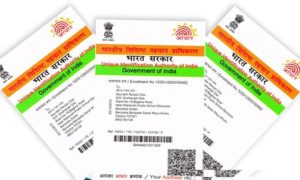The EMPS-2024 (Electric Mobility Promotion Scheme) being implemented for the period April 1, 2024 to September 30, 2024 is being subsumed under the PM E-DRIVE scheme
The government on Tuesday launched the PM E-DRIVE Scheme, with an outlay of Rs 10,900 crore for faster adoption of electric vehicles, setting up of charging infrastructure and development of EV manufacturing ecosystem in India.
The scheme shall be implemented from October 1, 2024 to March 31, 2026.
The EMPS-2024 (Electric Mobility Promotion Scheme) being implemented for the period April 1, 2024 to September 30, 2024 is being subsumed under the PM E-DRIVE scheme.
Read More: How To Check If Your LPG Gas Cylinder Is Expired: A Complete Guide
The subsidy under the PM E-DRIVE scheme for electric two-wheelers has been fixed based on battery power at Rs 5,000 per kilowatt hour but the overall incentive will not exceed Rs 10,000 in the first year.
In the second year, it will be halved by Rs 2,500 per kilowatt hour, and the overall benefit will not exceed Rs 5,000. Currently, popular electric scooter makers like Ola, TVS, Ather Energy, Hero Vida (Hero Motocorp) and Chetak Bajaj have battery capacities of 2.88-4 kWh in price range of Rs 90,000 to Rs 1.5 lakh.
Addressing the launch event, Additional Secretary in Ministry of Heavy Industries Hanif Qureshi said a mobile app will be introduced for e-vouchers generated for availing subsidy under the scheme to make the entire process seamless.
Read More: Golden Visa, or Golden Passport, and how to choose the best country option?
“One vehicle per Aadhaar will be allowed. As soon as the vehicle is sold, e-voucher will be generated,” the additional secretary said.
He further informed that Rs 780 crore being earmarked towards upgradation of testing facilities under PM E-DRIVE scheme is proposed to be utilised for new equipment and technology to be put in place for testing of electric vehicles.
Under the PM E-DRIVE scheme, subsidies/demand incentives worth Rs 3,679 crore have been provided to incentivise e-2Ws, e-3Ws, e-ambulances, e-trucks and other emerging EVs. The scheme will support 24.79 lakh e-2Ws, 3.16 lakh e-3Ws, and 14,028 e-buses.
Read More: How to make the most of credit cards during the festive season?
Three-wheelers, including e-rickshaws, will get a demand incentive of Rs 25,000 in the first year, which will be halved to Rs 12,500 in the second year.
For the L5 category (cargo three-wheelers), they will get a benefit of Rs 50,000 in the first year, and for the second year, it is Rs 25,000.
Ministry of Heavy Industries is introducing e-vouchers for EV buyers to avail demand incentives under the scheme. At the time of purchase of the EV, the scheme portal will generate an Aadhaar authenticated e-voucher for the buyer.
A link to download the e-voucher shall be sent to the registered mobile number of the buyer. This e-voucher will be signed by the buyer and submitted to the dealer to avail demand incentives under the scheme.
Thereafter, the e-voucher will also be signed by the dealer and uploaded on the PM E-DRIVE portal. The signed e-voucher shall be sent to the buyer and dealer through an SMS.
The signed e-voucher will be essential for OEM (original equipment manufacturer) to claim reimbursement of demand incentives under the scheme. The scheme will promote the deployment of e-trucks in the country.
Read More: Nomination Rules For Demat Account, Mutual Fund Investments Changed; Know What Sebi Said
An amount of Rs 500 crore has been allocated for incentivising e-trucks. Incentives will be given to those who have a scrapping certificate from MoRTH approved vehicles scrapping centres.
The scheme addresses range anxiety of EV buyers by promoting in a big way the installation of electric vehicle public charging stations (EVPCS). These EVPCS shall be installed in select cities with high EV penetration and also on selected highways.
Read More: Concert credit cards: applied today, discarded tomorrow
The scheme proposes installation of 22,100 fast chargers for e-4Ws, 1,800 fast chargers for e-buses and 48,400 fast chargers for e-2W/3Ws. The outlay for EVPCS will be Rs 2,000 crore.





































